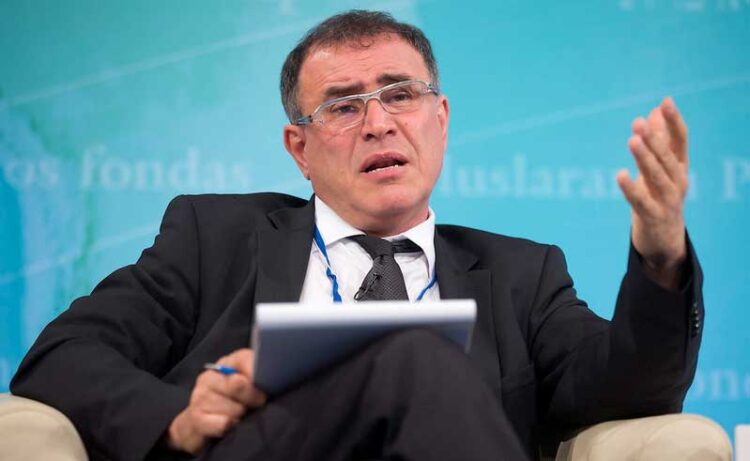Noted economist Nouriel Roubini thinks that the United States banking crisis is not over and inflation is likely to continue in developed markets. Speaking to CNBC-TV18 on April 11, Roubini spoke about inflation and deflation concerns and where to invest in a stagflation scenario — recommending inflation index bonds and gold as investment options. He also spoke about his outlook on India as a rising economy and a big beneficiary of friend-shoring. In this article, we will dive deeper into his insights and explore what they mean for the US banking system, the Federal Reserve, and emerging markets.
US Banking Crisis
Roubini believes that the US banking crisis is far from over. He stated that there are still more financial institutions in trouble, and the recent problems of US banks have come from duration risk. Roubini predicts that the US will go from market risk to credit risk, and as the credit crunch increases, there will be a recession in the US. Once there is a recession in the US, there will be more non-performing loans (NPLs) and more defaults.
The economist also noted that the tight labor market implies that wage inflation is still too high in the US, which means that there could be a severe inflation problem in the near future. Inflation is the rate at which prices for goods and services rise over time, reducing the purchasing power of a currency. A high inflation rate can result in a significant decrease in the value of a currency and could lead to a recession.
The Fed & the Economy
According to Roubini, the US Federal Reserve (Fed) needs to increase interest rates further to achieve its 2 percent inflation target. However, he added that if the Fed raises rates, there can be a recession and financial instability in the US. There is a contradiction between achieving price stability, maintaining growth, and financial stability. If the Fed blinks, there will be a de-anchoring of inflation expectation in the US.
Roubini thinks that the central bank will pause on cuts and hikes, like most major central banks. He added that the consequences of going back to 2 percent inflation will be economic and financial instability in the US. There will be a repeat of the 1970s when inflation got out of control. Therefore, the Fed must balance the need for higher interest rates with the potential risks that come with them.
Also Read: CBI Charges Kochhars and VN Dhoot in ICICI Loan worth Rs. 1,875 Crores Fraud Case
Friend-Shoring and India’s Growth
Friend-shoring is a term used when countries or governments manufacture or source goods from countries that are their geopolitical allies. According to Roubini, India is a rising economy and a big beneficiary of friend-shoring. India’s potential growth run of 7 percent may be higher with more economic reform. India is going to be a rising power in the next few years with additional economic reforms. Roubini sees India as closer to the West and to the Dollar than the Yuan.
Where to Invest in a Stagflation Scenario
Stagflation is a period of stagnant economic growth coupled with high inflation rates. Roubini recommends inflation index bonds and gold as investment options during this scenario. Inflation index bonds are government-issued securities whose principal and interest payments are adjusted for inflation. This ensures that the investor’s purchasing power is protected against inflation.
Gold is a commodity that is widely considered a safe-haven asset. It has historically performed well in times of uncertainty and economic downturns. Investors often turn to gold as a way to hedge against inflation, political turmoil, and currency devaluation.
Source: Moneycontrol







